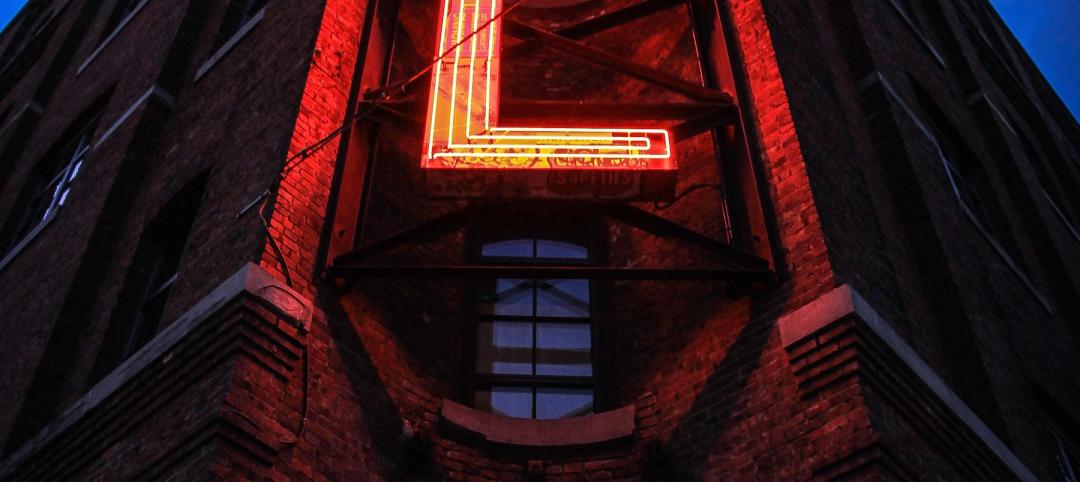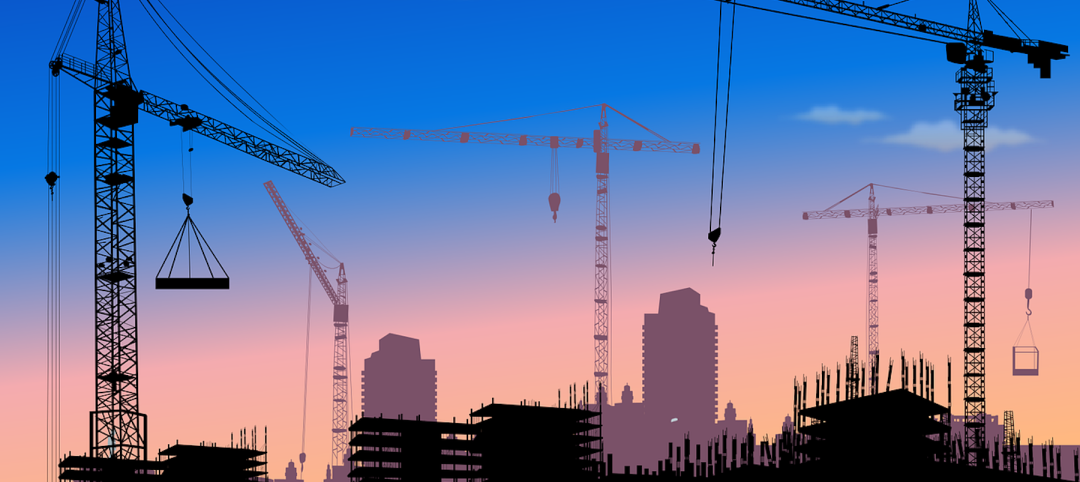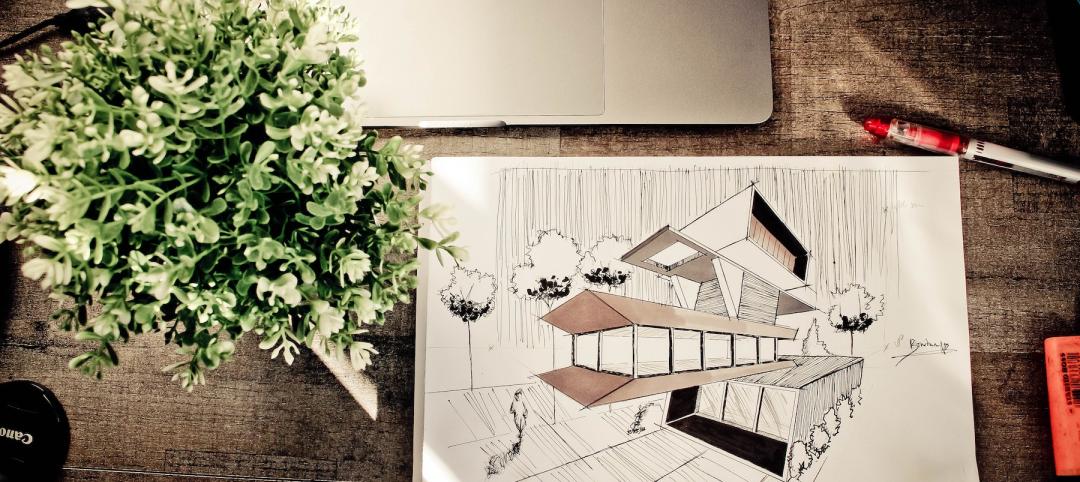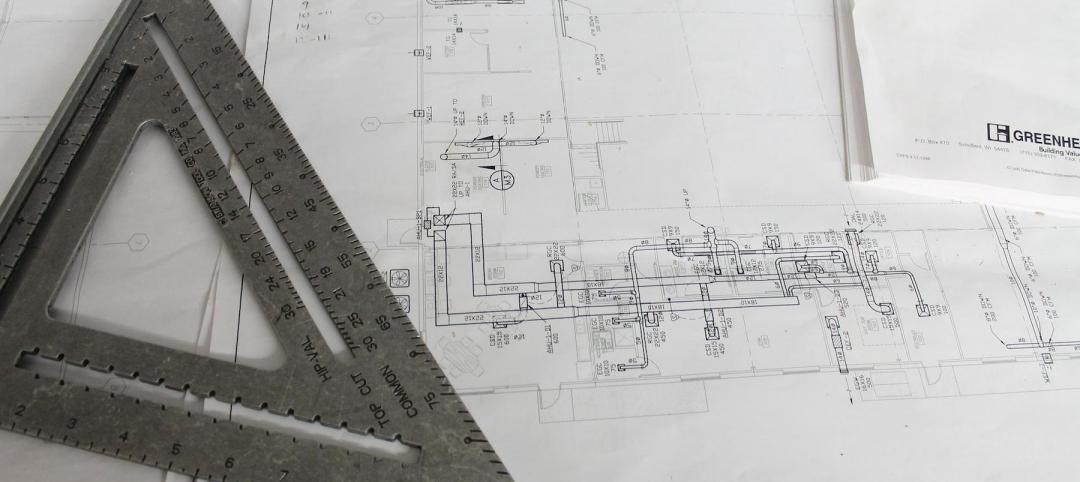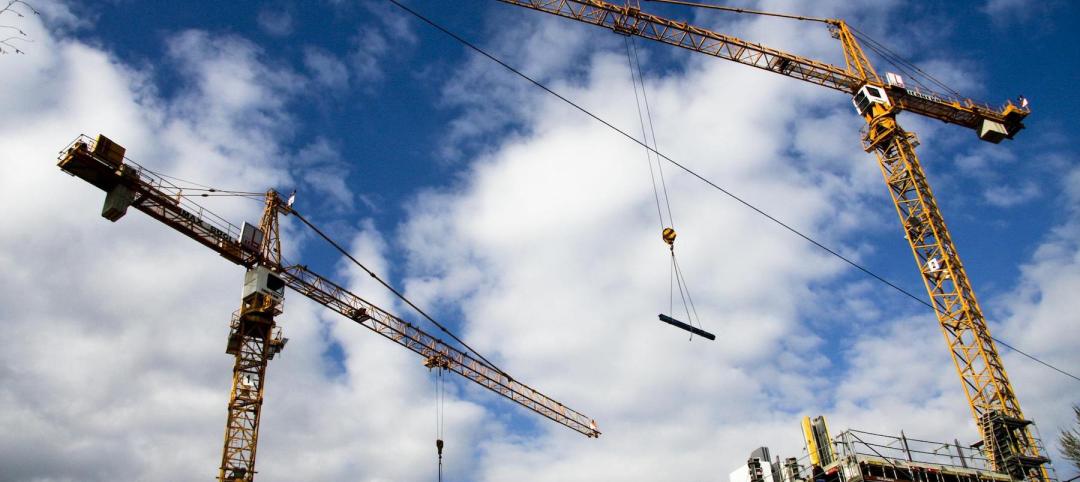In the five months since the pandemic-driven real estate shut downs began, the BD+C editorial team has authored or posted more than 135 articles dedicated to COVID-19 and its impact on the AEC market and the built environment. We’ve curated well more than 250 research reports, on-demand webinars, white papers, and articles from third-party sources in our coronavirus newsfeed. We’ve interviewed nearly two dozen AEC experts about their team’s and clients’ coronavirus response on our new streaming video show, The Weekly.
Through all of this reporting, a single common theme bubbled to the surface: Buildings are part of the problem in controlling a global health pandemic. Yet buildings—and the AEC professionals that design, engineer, and construct them—are also a major part of the solution.
From infection control strategies to 3D-printed PPE equipment to pop-up isolation units and COVID-19 testing stations, AEC firms are delivering practical, innovative solutions to complex problems during a time when their clients need it most. The axiom “innovation loves a good crisis” is playing out right in front of our eyes.
Not since 9/11 has a single event so severely rocked the foundation of the commercial building industry. As owners, developers, and property and facility managers scramble to re-open their properties and create protocols for maintaining safe and healthy interior spaces, they are turning to their AEC firm partners for guidance and support.
And much like the post-9/11 response from the AEC community, many of the best practices and innovations being instituted in response to the COVID-19 pandemic will become permanent fixtures in the built environment (codified, or otherwise).
Take, for example, MEP design, especially for commercial office buildings. Forget the fitness centers, food trucks, and spacious lobbies—the hottest office building amenities are indoor air quality and touchless design. Technologies and design approaches that were on the fringe—bipolar ionization, UV light disinfection, enhanced air filtration—are being pushed to the forefront. Clients are investing in these systems in an effort to retain and attract tenants. These design approaches have been added to the “cost of doing business” list for commercial office owners and developers.
One side effect of the coming MEP spending boom, says Andrew Horning, Vice President with Bala Consulting Engineers, is higher energy bills for building owners. He explains COVID-19’s impact on sustainability and energy efficiency in the July 23rd episode of The Weekly. Watch on demand at: BDCnetwork.com/horizontv.
Related Stories
Hotel Facilities | Jul 28, 2022
As travel returns, U.S. hotel construction pipeline growth follows
According to the recently released United States Construction Pipeline Trend Report from Lodging Econometrics (LE), the total U.S. construction pipeline stands at 5,220 projects/621,268 rooms at the close of 2022’s second quarter, up 9% Year-Over-Year (YOY) by projects and 4% YOY by rooms.
Codes and Standards | Jul 22, 2022
Hurricane-resistant construction may be greatly undervalued
New research led by an MIT graduate student at the school’s Concrete Sustainability Hub suggests that the value of buildings constructed to resist wind damage in hurricanes may be significantly underestimated.
Market Data | Jul 21, 2022
Architecture Billings Index continues to stabilize but remains healthy
Architecture firms reported increasing demand for design services in June, according to a new report today from The American Institute of Architects (AIA).
Market Data | Jul 21, 2022
Despite deteriorating economic conditions, nonresidential construction spending projected to increase through 2023
Construction spending on buildings is projected to increase just over nine percent this year and another six percent in 2023, according to a new report from the American Institute of Architects (AIA).
Building Team | Jul 18, 2022
Understanding the growing design-build market
FMI’s new analysis of the design-build market forecast for the next fives years shows that this delivery method will continue to grow, despite challenges from the COVID-19 pandemic.
Market Data | Jul 1, 2022
Nonresidential construction spending slightly dips in May, says ABC
National nonresidential construction spending was down by 0.6% in May, according to an Associated Builders and Contractors analysis of data published today by the U.S. Census Bureau.
Market Data | Jun 30, 2022
Yardi Matrix releases new national rent growth forecast
Rents in most American cities continue to rise slightly each month, but are not duplicating the rapid escalation rates exhibited in 2021.
Market Data | Jun 22, 2022
Architecture Billings Index slows but remains strong
Architecture firms reported increasing demand for design services in May, according to a new report today from The American Institute of Architects (AIA).
Building Team | Jun 17, 2022
Data analytics in design and construction: from confusion to clarity and the data-driven future
Data helps virtual design and construction (VDC) teams predict project risks and navigate change, which is especially vital in today’s fluctuating construction environment.
Market Data | Jun 15, 2022
ABC’s construction backlog rises in May; contractor confidence falters
Associated Builders and Contractors reports today that its Construction Backlog Indicator increased to nine months in May from 8.8 months in April, according to an ABC member survey conducted May 17 to June 3. The reading is up one month from May 2021.



